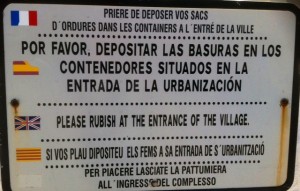News from JMS
Welcome to our blog, where we plan to feature news, views and translation clues. Things like: did you know that English cats say ‘meow’, German moggies ‘miau’, French felines ‘miaou’, and Spanish Siamese ‘miau’. Pause for thought…
Rubbish spelling
Spelling errors?
Word of the day: got the hump?
It’s Thursday so we’re ‘over the hump’ it seems. Wednesday is ‘hump day’ so once it’s gone, the weekend approaches at speed, our engines revving as we enter the last lap of the week. It’s a new one on us and there are plenty more to discover in the 2013 edition of the OED, among them ‘braggadocious’. I wonder if ‘Bradelicious’ will be next…
Word of the week: geek
We are going to post a different word each week, whose origins and contemporary meaning are (we think) very interesting. Word of the week is ‘geek’, a loanword (there’s a leitmotif) from the Low German word ‘geck’, meaning a simpleton or one who is easily deceived. When borrowed by American slang, it came to mean a crazy person who charmed snakes or bit off live chicken heads in the circus, as one did in those days. Geek morphed in slang (new word ‘to slang-morph’?) and today refers to a highly tech-savvy person who knows more about bytes than biting and is king of the internet rather than jester at the carnival. A geek is no longer crazy or deceived but cool, chic and in charge.
Everyday German doesn’t need translating
It is amazing how many German loanwords (borrowed from ‘Lehnwort’) we use without thinking. There are fourteen in this (rather contrived, I admit) sentence alone:
Suddenly overwhelmed by both Weltschmerz and Wanderlust, I headed to the delicatessen and filled my rucksack with schnitzels, hamburgers, frankfurters, sauerkraut, strudel and pretzels for the long journey, adding lager and schnapps for emergencies, and then headed for the hinterland with my dachshund.
Franglicisims
Sometimes translation is a gift. We came across the following words in a French to English text about ‘un weekend parfait’: mon pullover, mes jeans, mes tennis, le jogging, le shopping, les toasts au beurre. It was all rather deja vu….
Cronuts: joined up thinking
Just had to blog about today’s new word: the ‘cronut’. It is a new form of ‘canonical pastry’ from New York that is the product of the unusual culinary union of the donut with the croissant. People queue for hours to buy them (some cronuts are prepared to pay 40 dollars for one from people who made it to the front of the queue at Dominique Ansel’s bakery in Soho). Nobody else is allowed to make the now trademarked cronut, which has led to the invention of the ‘doissant’ in Washington DC (Donut Croissant). Is this a new phenomenon, a new tulip fever, or just a storm in a pastry bowl?
Language: owning and loaning
Loanwords are interesting. They enter our language from different countries and become part of our regular vocabulary without us really being aware of their source language. Here are just a few (more to come in another blog):
My windscreen wipers were kaputt (German) so driving my car was verboten (German). I woke up full of angst (German) thinking about having to schlep (Yiddish) in the rain to the craic (Irish Gaelic) on a variety of buses in my anorak (Eskimo). I set off feeling very bolshy (Russian), but I soon cheered up after a delicious smorgasbord (Swedish) of salads, a great pizza (Italian) and hours of karaoke (Japanese).
Ciao for now.
The Inferno of Dan and Dante
Translation can be very intensive at times. We have been glued to our screens into the dark hours on many an occasion in an attempt to find the right word and meet a tight deadline. But we have yet to experience what sounds like the hell of the translators of Dan Brown’s latest tome, Inferno. The eleven translators experienced their own underworld in a windowless bunker near Milan for weeks on end, with restricted access to computers, mobiles, family, sunlight or normal life. Total immersion of a different kind. They were even given cover stories so that inquisitive friends did not ask too many questions about their whereabouts. Not so much of a whodunit but a whodunthat. All very hush, hush and rush, rush. The translated versions were published at the same time as the English editions and millions of copies have been sold around the world already. Not too hellish for Dan Brown I suspect. He has sold more than 200 million copies of his books so far. The most successful book we have worked on got into six figures but I doubt Dan Brown is quaking in his ‘Fortress of Gratitude’, as he calls his library…
They’re their, dear
And at the same festival Simon Horobin, an English professor at Magdalen College, Oxford, said it was not sacrilegious to suggest that ‘they’re’, ‘their’ and ‘there’ might be spelt in the same way.
That will put the cat among the pigeons…Must check how you say that in Mandarin.

